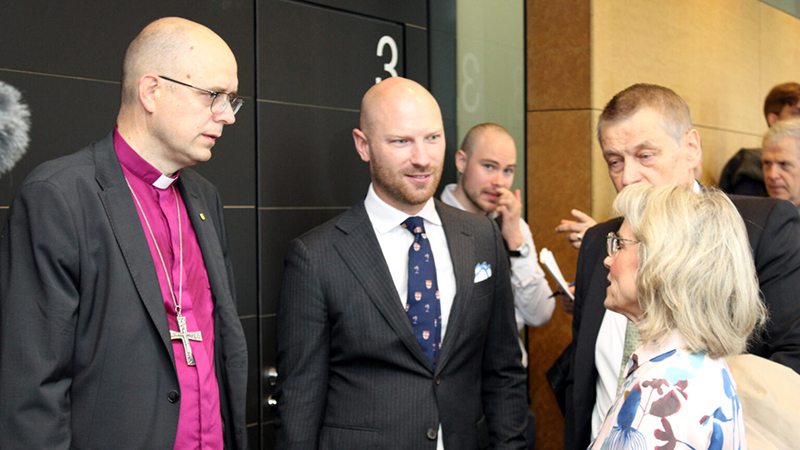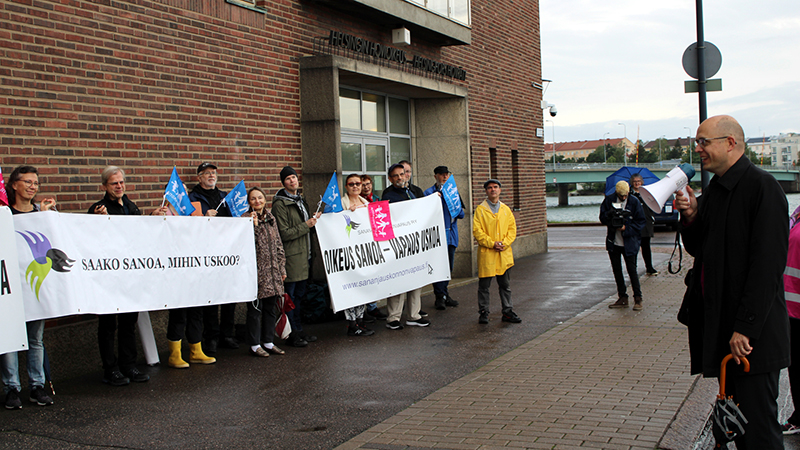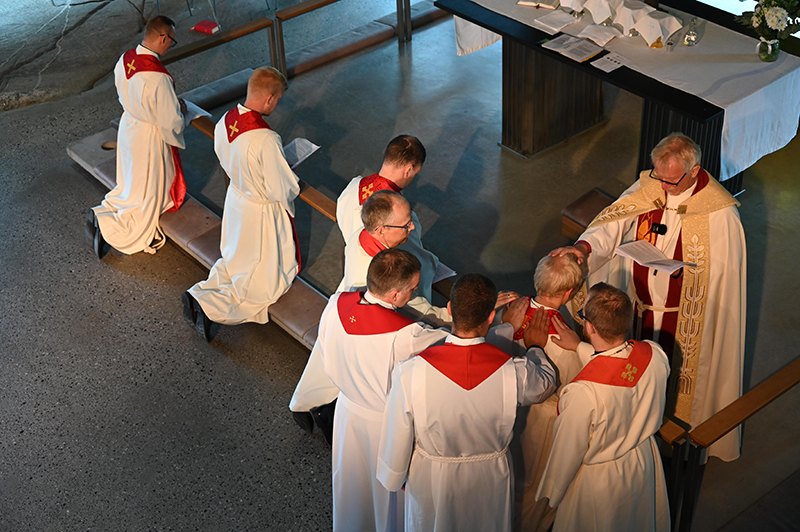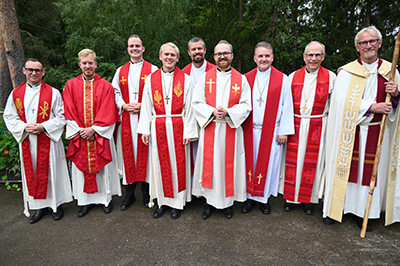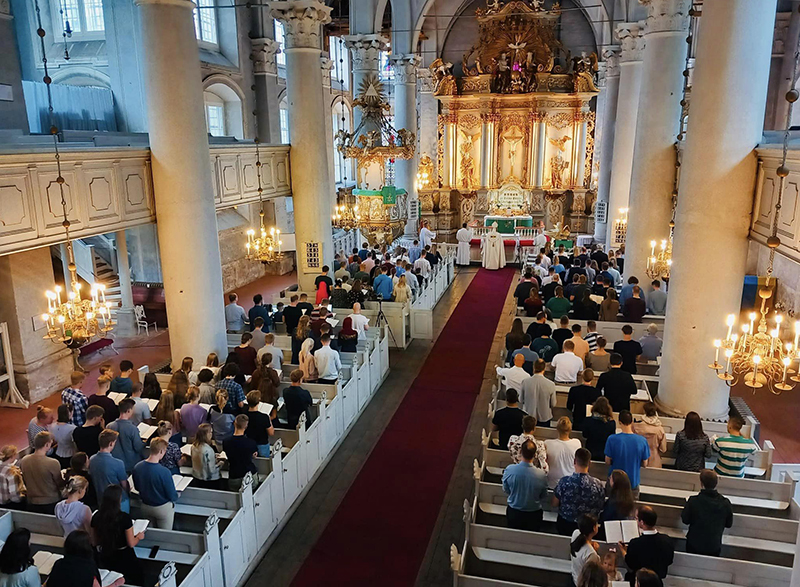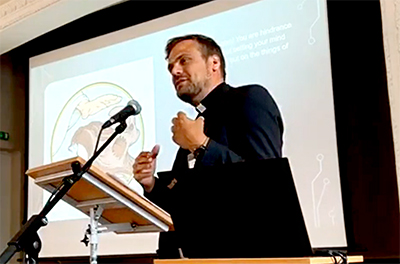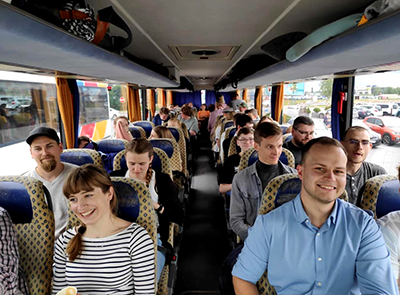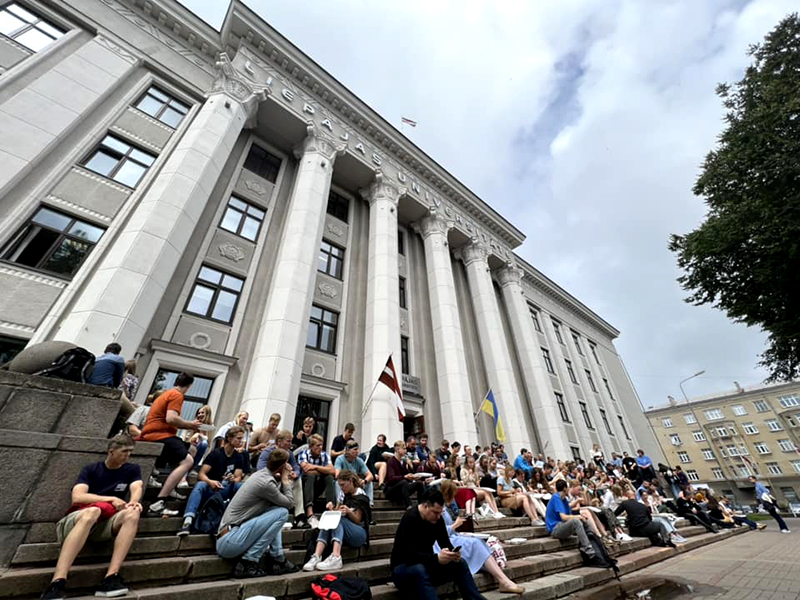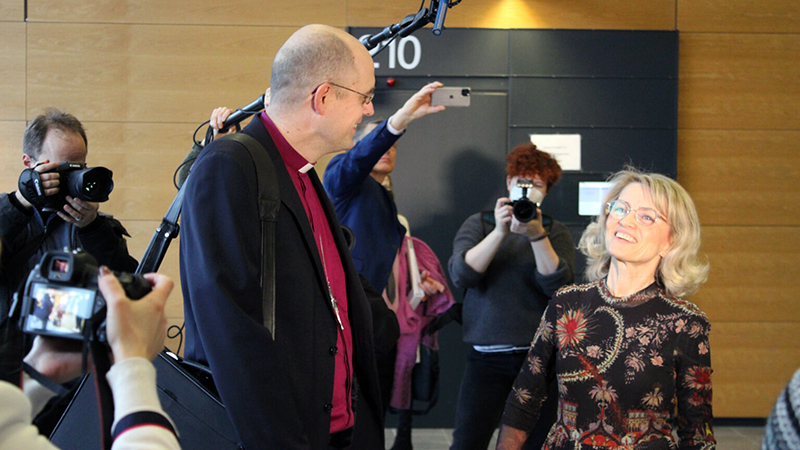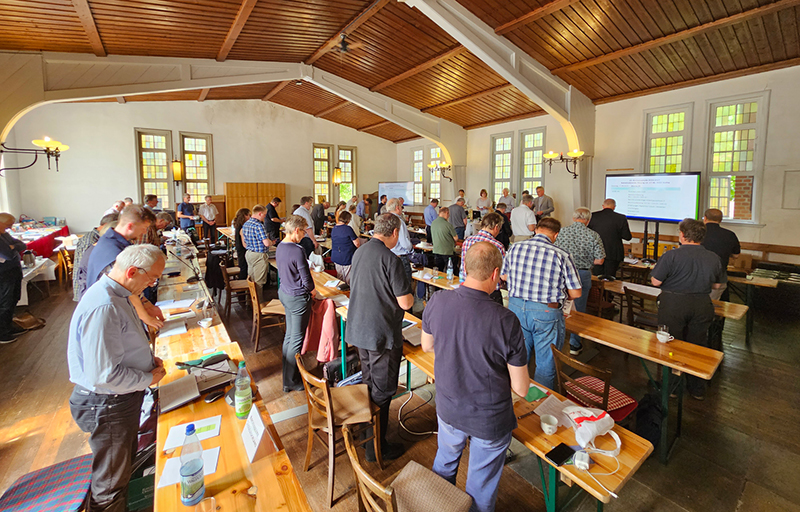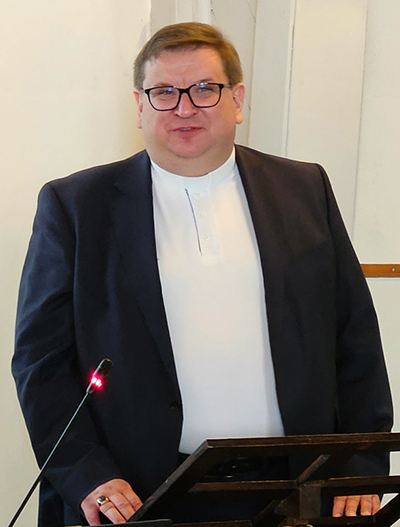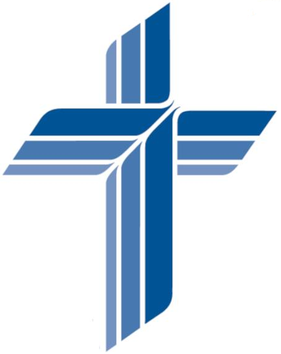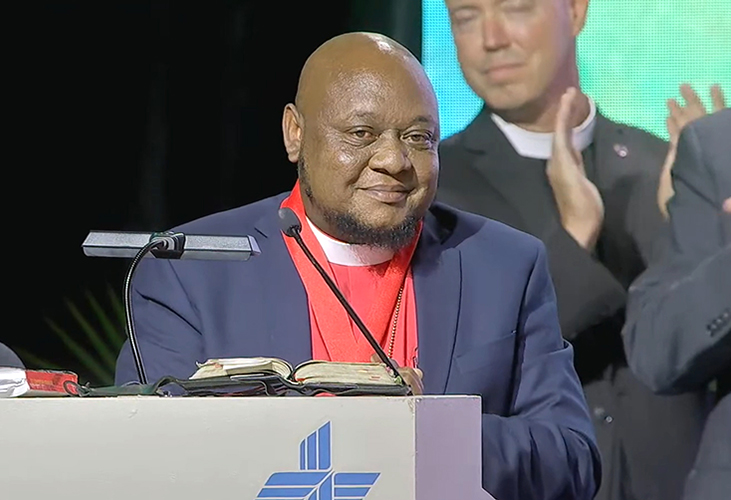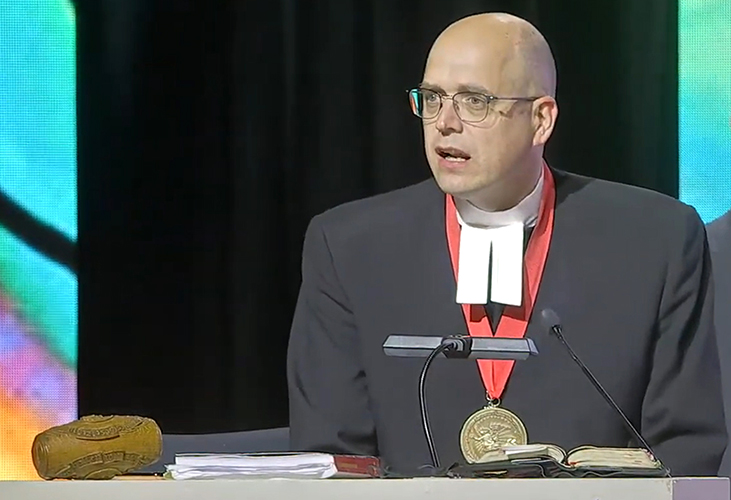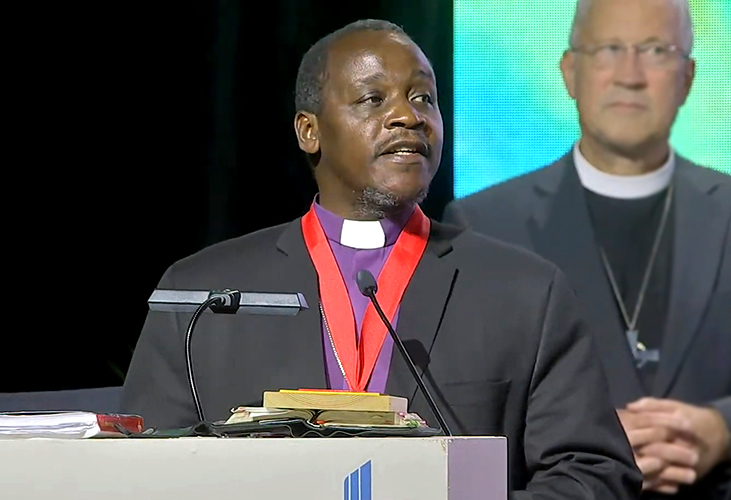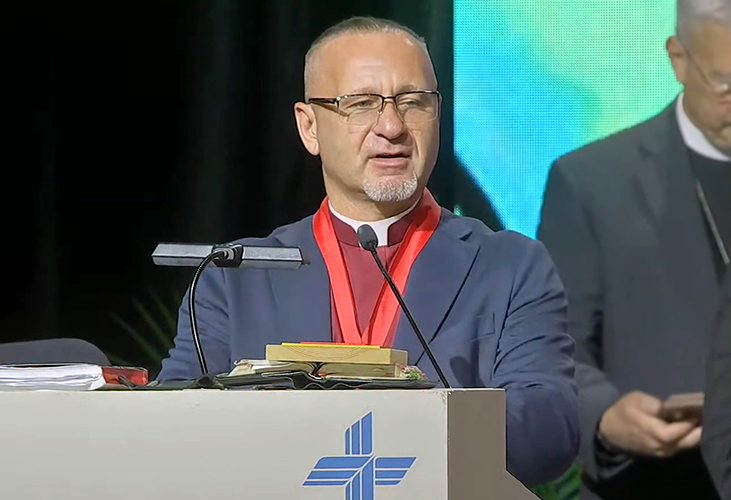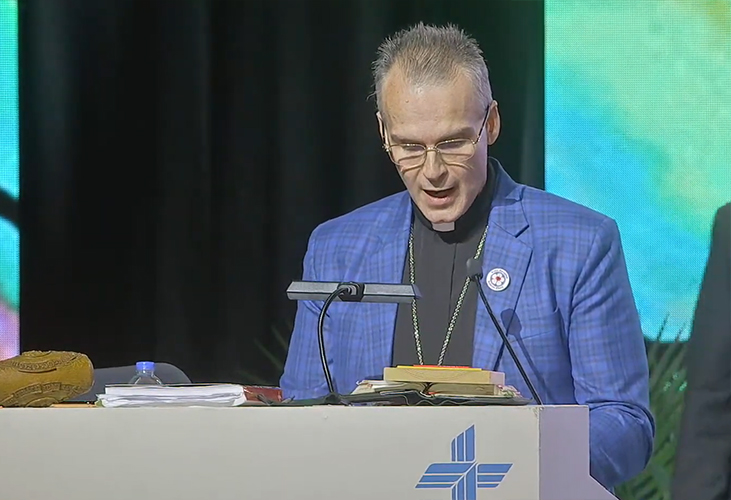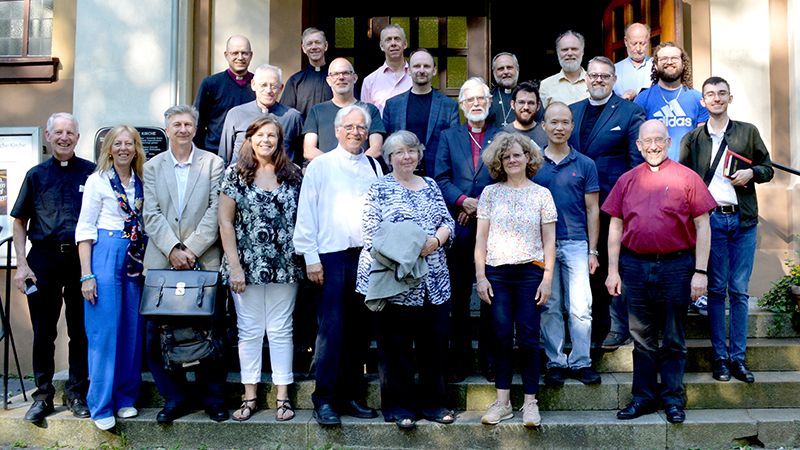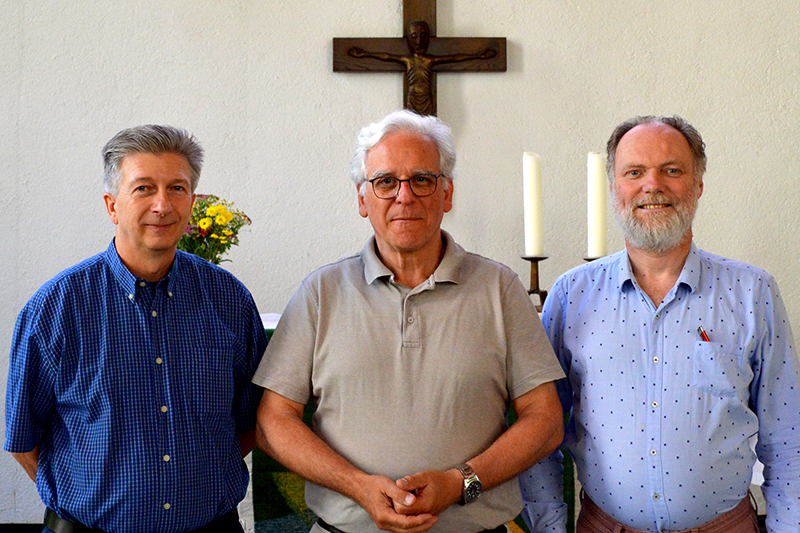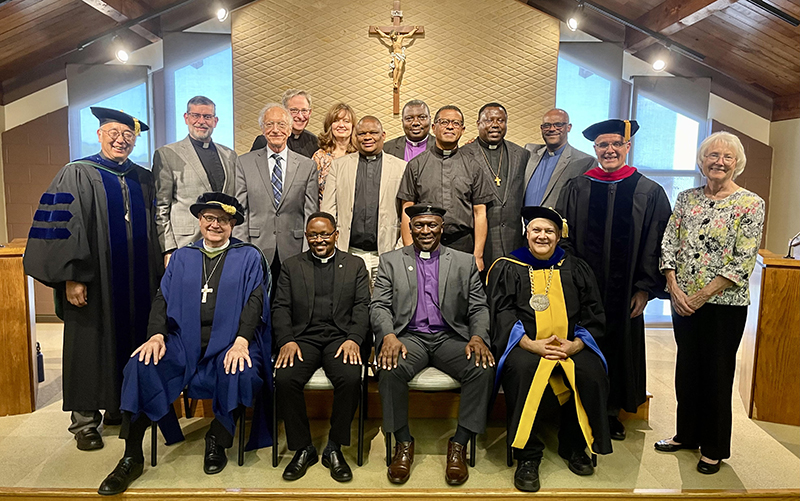
USA – The International Lutheran Council’s (ILC) Lutheran Leadership Development Program (LLDP) celebrated its second commencement during its most recent session earlier this year in Fort Wayne, Indiana—and at the same time welcomed new students into the program.
Graduating were Bishop Modise Maragelo of the Lutheran Church in Southern Africa (LCSA) and Assistant Bishop Daniel Mono of the Evangelical Lutheran Church of Tanzania’s South East of Lake Victoria Diocese (ELCT-SELVD). Each received a Certificate of Theology in Lutheran Leadership.
The commencement service was conducted by the LLDP’s Director Rev. Dr. Naomichi Masaki, with ILC General Secretary Timothy Quill also addressing the graduates. President Lawrence Rast of Concordia Theological Seminary in Fort Wayne, who sits on the LLDP’s council, brought greetings. Additional greetings by letter were shared from ILC Chairman Juhana Pohjola and former ILC General Secretary Albert Collver. The first four graduates of the LLDP, who completed the program in November 2022, also sent brief words of congratulations.
Dr. Masaki described the graduates’ theses as “noteworthy and quite relevant.” Bishop Maragelo wrote on “The Rise, Decline, and Hopeful Future of a Confessional Lutheran Church: The LCSA in Post-Apartheid South Africa.” Assistant Bishop Mono’s thesis was: “The Growing Lay Ministry Movement in the Evangelical Lutheran Church of Tanzania – South East of Lake Victoria Diocese: Its Theological Evaluation, and Suggestions for the Future.”
The Value of the LLDP
“When this program was introduced to me, I was skeptical,” LCSA Bishop Maragelo admitted. “I did not know what it was, yet I was asked to nominate men to participate in this training. I decided my deputy and I should attend so that we would know what this was all about before sending others.”
“It was heartwarming to be welcomed so warmly by such friendly, humble, and open servant-minded lecturers,” he continued. “Finding oneself among other diverse African Lutheran men of God as fellow students was a blessing from God of its own kind. The program was the manifestation of God Himself at work through dedicated servant leaders. The courses were at a high academic proficiency, yet also comprehensive and practical. The richness of the Gospel of Jesus Christ was shared.”
“As a graduate, I now proudly advocate for the LLDP without a shadow of doubt,” Bishop Maragelo concluded. “What we were given will never go to waste for the future of our church—for the LCSA, in particular, as well as for the other churches who have sent participants. The richness of the Gospel will be proclaimed in our pulpits, taught in our seminaries, and shared wherever we get a chance.”
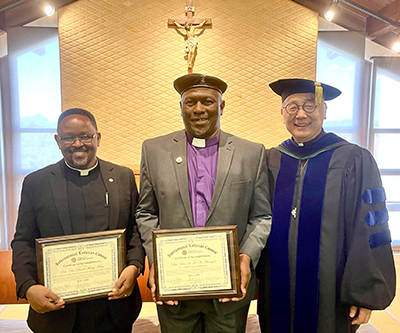
ELCT-SELVD Assistant Bishop Mono also had positive words to say about the program. “The LLDP gave me the opportunity to visit Wittenberg and to learn many things about the history of Lutheranism and Martin Luther’s life,” he explained. “I was not deeply rooted in confessional Lutheran theology in my own theological background, because I was raised in liberal Lutheranism and my bachelor and master’s degrees in theology came from a liberal seminary in Tanzania. Only the Doctor of Ministry program at Concordia Theological Seminary (Fort Wayne, USA) had given me basic confessional Lutheran theology.”
“The LLDP helped me to go deeper into the Book of Concord and confessional theology,” he explained. “Now I have deep confidence in identifying myself as a confessional Lutheran leader. I am able now to distinguish between real Lutheranism and those who call themselves Lutheran but do not hold to the Lutheran confessions.”
Dr. Mono noted that the courses in the LLDP were very helpful for his own service to the church. “The issues of church fellowship; stewardship and accountability; planning and task management; Lutheran liturgy and hymnody; the Office of the Holy Ministry and the means of grace… these were all very important subjects taught by competent instructors,” he said. “Moreover, our time together in the LLDP was very interactive; I was given opportunities to learn from others. Hearing the experiences of other Lutheran church bodies was very educational and has helped me to evaluate my own church body. I will use what I have gained in this program to serve my church. My hope is that more leaders will be given the opportunity to participate in the LLDP. This will help our church bodies to be strong and identify as confessional Lutherans.”
Bishop Maragelo and Assistant Bishop Mono both expressed their heartfelt thanks to the International Lutheran Council, to Concordia Theological Seminary (Fort Wayne), and to the LLDP’s Director, Dr. Masaki.
A new class of students
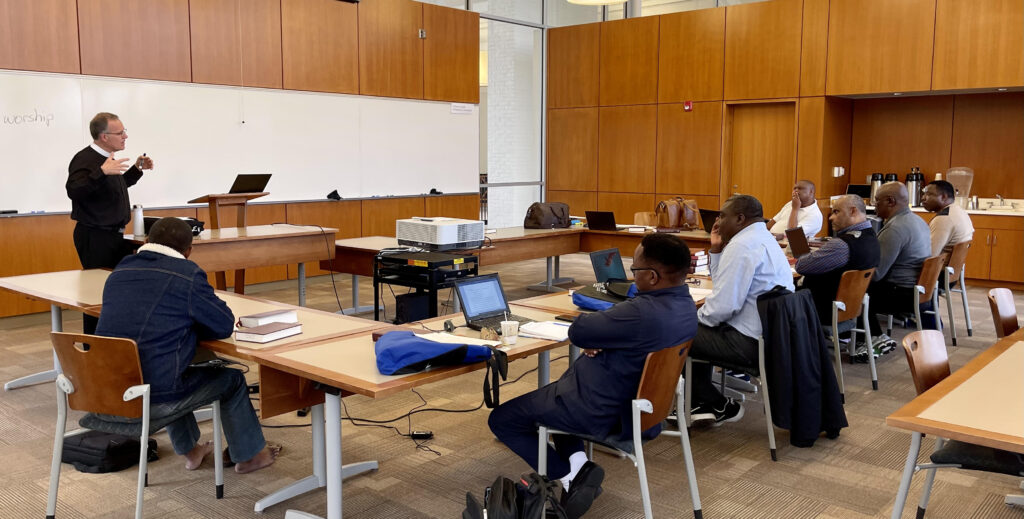
The commencement ceremony took place near the end of the LLDP’s most recent two-week session, which was held May 22 to June 2, 2023 at Concordia Theological Seminary in Fort Wayne (CTSFW). Rev. Dr. Paul Grime, Dean of Chapel for CTSFW and the project director of the Lutheran Service Book, taught the first week’s course on “Issues in Lutheran Liturgy and Lutheran Hymnody.” LLDP Director Masaki taught on “The Lord’s Supper” during the second week.
“Our May/June sessions brought much joy for me for a variety of reasons,” commented Dr. Masaki. “That two more worthy leaders of the first cohort have completed the program is a tremendous joy. Bishop Maragelo was the leader of our first cohort. Dr. Mono also played an important part in the group, and is now serving as Assistant Bishop in his own church.”
“But on top of it all, I was also delighted in welcoming students for the second cohort,” Dr. Masaki continued. “The fact that the LLDP is continuing in this way is such a blessing and gift from the Lord. I am thankful to the Lord for the leadership of the ILC in supporting this program.”
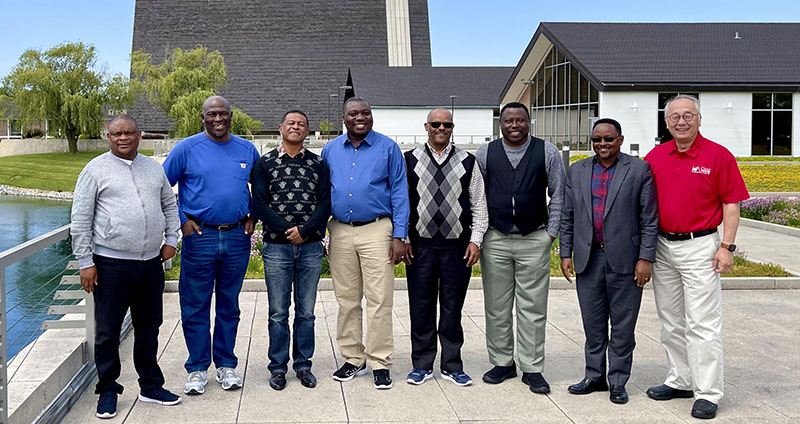
As a result of visa issues, not all new students were able to attend the most recent session in Fort Wayne. But the students newly enrolled in the LLDP, and those still finishing studies from the first class, hail from twelve church bodies in nine countries, including Ethiopia, Ghana, Kenya, Madagascar, Nigeria, the Philippines, South Africa, South Sudan/Sudan, and Tanzania.
With the most recent commencement service, six students have now graduated from the program, with another three expected to graduate in 2024.
The Lutheran Leadership Development Program is a graduate-level program of the International Lutheran Council dedicated to equipping confessional Lutheran leaders around the world with the theological and practical knowledge necessary to serve their church bodies effectively.
You can support the work of the Lutheran Leadership Development Program by making a donation online. You can also mail a donation by cheque to:
International Lutheran Council
PO Box 10149
Fort Wayne, Indiana 46850 USA
———————


